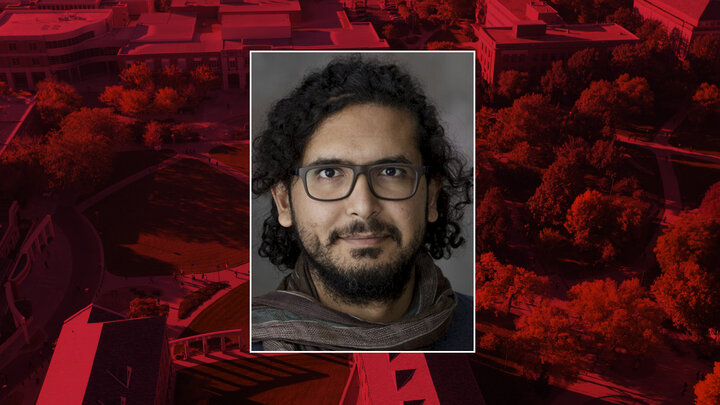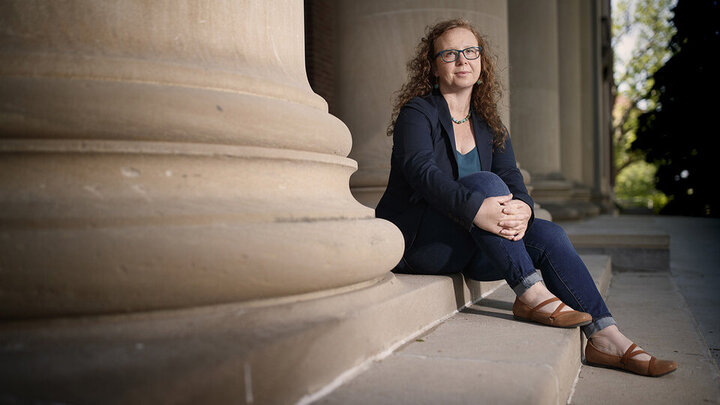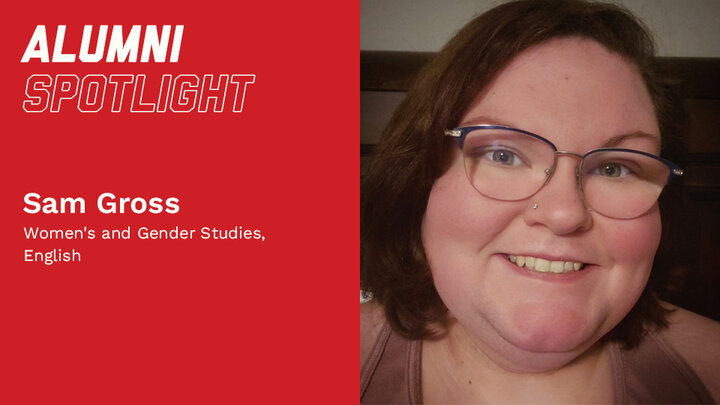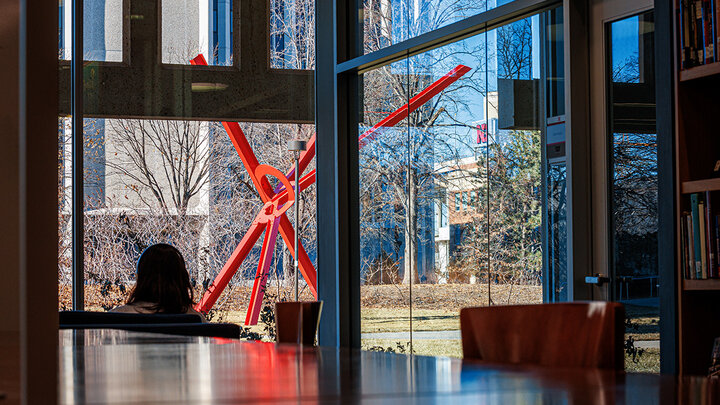Taking a cue from ocean-dwelling species, Stephin Morin, associate professor of chemistry, and colleagues are developing synthetic skins that will support the emergence of next-generation “soft” machines, robots and other devices. The skins closely approximate the mechanical action of the chromatophores found in cephalopods — squids, octopi, cuttlefish and other species. Articles on the research appeared in Interesting Engineering, Phys.org, Scienmag and Sustainability Times.
Alice J. Kang, political science and ethnic studies, co-wrote a June 3 piece for The Conversation on the lack of female political leaders in Nigeria shaping children’s views. “Our finding that children largely see politics as a ‘man’s world’ prompts reflection on societal and political biases,” the co-authors wrote. “To address the under-representation of women in political leadership positions in Nigeria, it is important to invest in civic education programs.”
Katherine Bogen, a doctoral student in psychology at Nebraska, was interviewed for a June 4 New York Times article on disappearing federal funding for medical research. She had been studying post-traumatic stress, alcohol use and intimate partner violence against bisexual women until her National Institutes of Health grant was terminated in March. Bogen was also featured in the June 26 episode of the Times podcast “The Daily.”
The University of Nebraska’s Daugherty Water for Food Global Institute and the University of Nebraska–Lincoln’s Clayton Yeutter Institute of International Trade and Finance partnered to provide four Yeutter Student Fellows — Zanib Al Razaq and Matthew Gillespie from CAS, as well as Lexi Bodlak and Ethan Zen — an immersive spring break trip to Ghana, The Fence Post reported June 15. The fellows have been tasked with researching how an irrigation company could best position itself to help meet the irrigation needs of the African continent.
The University of Nebraska system landed among the top 100 universities with the most U.S. utility patents granted in the 2024 calendar year, Silicon Prairie News reported June 26. NU’s 47 patents ranked No. 49 in the U.S. and No. 82 in the world, according to the list compiled by the National Academy of Inventors. Several projects led by CAS researchers are among the thirty-six patents.




